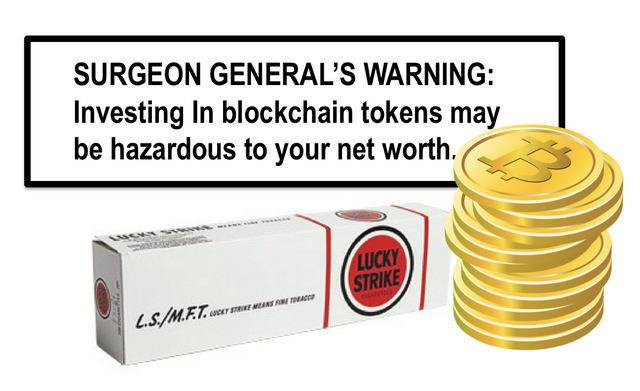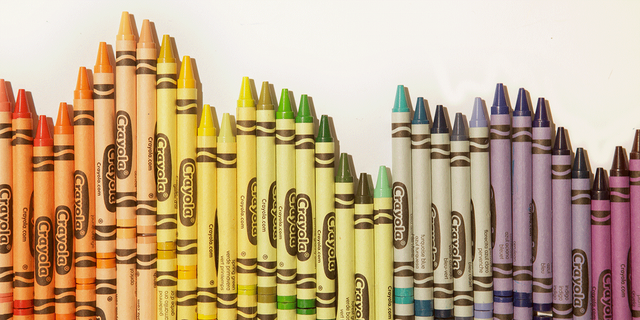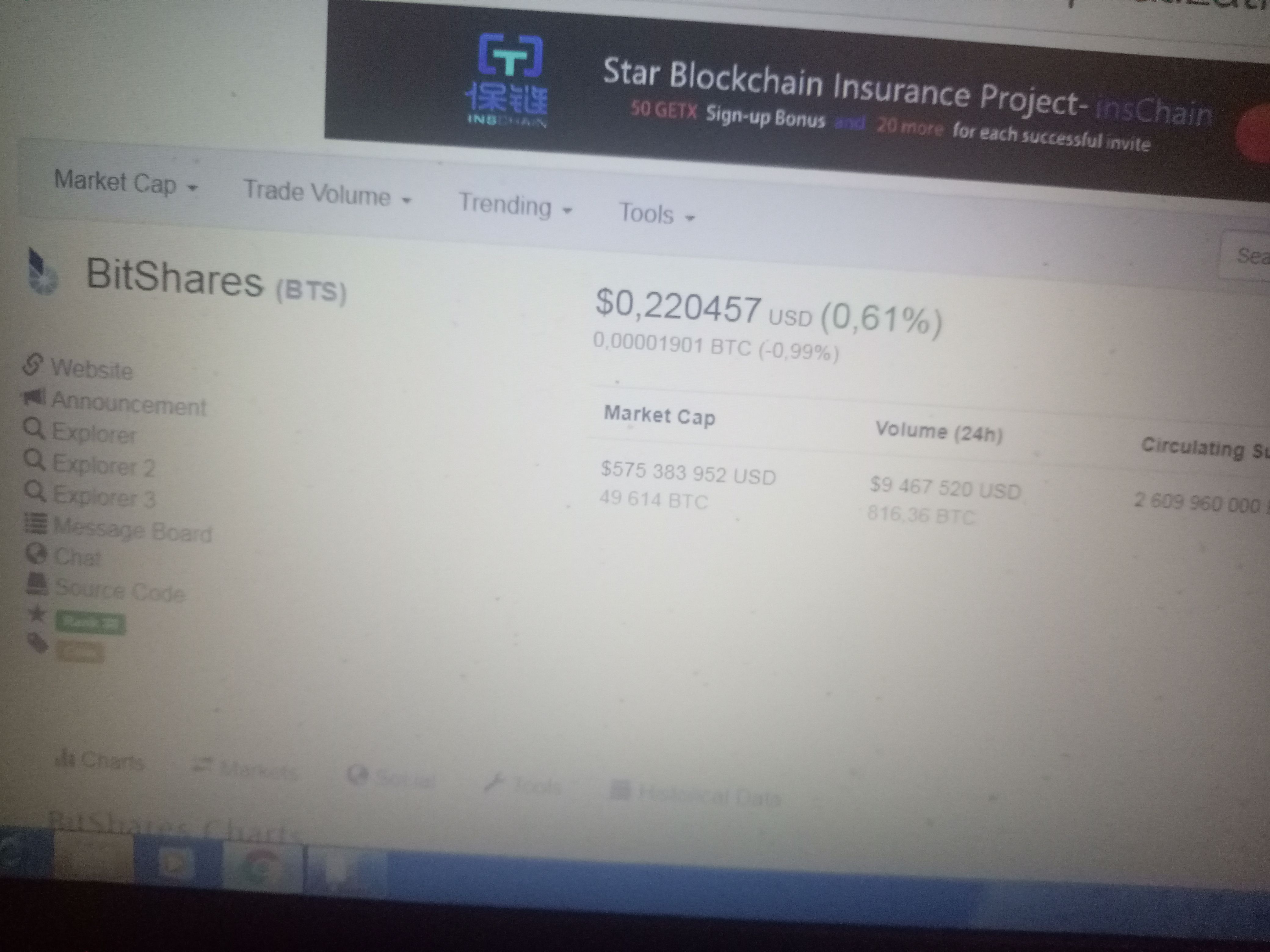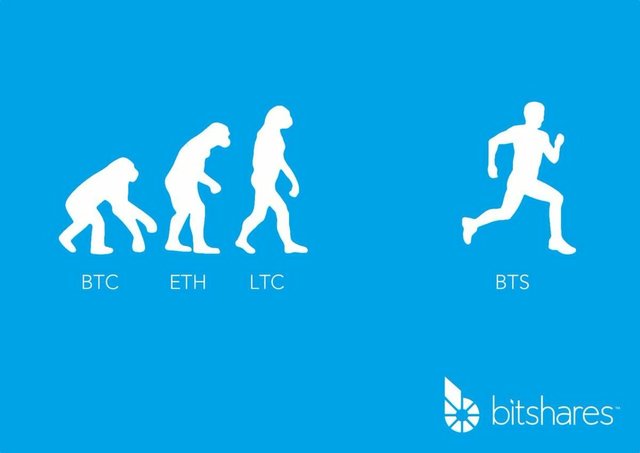Stokens and Lottokens and Crayokens, Oh My!
I'm glad the American Securities and Exchange Commission (SEC) is there to protect unsophisticated investors from hurting themselves in the Wild West of securities. We've got big plans for growing the BitShares ecosystem with a whole new family of SEC-compliant assets and services on an upgraded "institutional grade" BitShares platform.
One of the key players in the BitShares ecosystem, Stokens.com, has taken the position that there are only two types of coins in the universe: SEC Securities or CFTC Commodities.
This is a defensible position from a purely jurisdictional point of view, but there are some blockchain tokens that shouldn't be force-fit into that category for the superficial reason that they "quack like a duck" and meet some "settled law" or hastily improvised turf-based definition of a security or a commodity. Let's keep in mind that the original reason for US securities and commodities laws was to protect the consumer, not to build up regulatory empires. If you must have such empires, can we please recognize that one size does not fit all?
Of course we can. That's why we have the new "Jumpstart our Business Startups" (JOBS) Act carve outs that make it easier to do smaller, simpler fund raises. Which rules apply depend on how much you want to raise, how long you've been in business, whether you are dealing with "sophisticated investors" or the unwashed masses, and other fine points of discrimination. Let's run with that!
Having established that there are principles behind our existing laws, why not continue to reason about what regulations really need to apply to blockchain tokens based on first principles, not over-general definitions like the infamous "Howey Test". If you like, consider this a case for JOBS-II (although I think JOBS-I gave the regulators a clear mandate to embrace what I'm about to propose).
I'm going to suggest breaking security tokens down three different types that ought to be regulated differently. I don't care if the SEC winds up in charge of all three, I just think they merit different treatments. If it were up to me, I'd want to break non-commodity tokens down into: stokens, lottokens, and crayokens.
The key reason for making this distinction is so that we don't throw out the baby with the bathwater. There are things you can do with blockchain tokens that benefit mankind, but only if they are low-overhead. If you add on lots of regulations and legal costs, you destroy them.
If we can regulate something deadly like cigarettes with just a discretionary warning on the label, why isn't that all we need for most blockchain tokens? What is it about them that needs more regulation to protect people from that much less risky behavior? And why don't we need regulations for rock climbing, sky diving, and unsafe sex? Why do we need to create whole new categories of crimes just to stop people from taking victimless risks with their own money?
"Stokens"
A "Stoken" is a security token. At stokens.com we say, "If you are a security, admit you're a security and be proud of it." Under the American JOBS act, it's become a lot easier than it used to be. Just do the work to get properly licensed and enjoy the fact that you can now trade freely on the blockchain without looking over your shoulder all the time. And you'll have a nice discriminating advantage in the crowded ICO market which has been filled with sketchy projects that are probably going to make headlines this year for all the wrong reasons. You'll be a Safe Legal Security Token. You can get on with building your vision!
"Lottokens"
How is a penny stock or a crypto token different from a lottery ticket or a poker chip? Shouldn't free adult Americans be able to choose any as their preferred form of gambling... at least in jurisdictions that permit gambling? Poker is a mix of skill and chance. So is picking penny stocks. Lotto tickets are a more certain loss than any randomly-selected ICO token. Why do people need to be "protected" more from something they can study and research than from things that involve no skill at all?
Why can an American go to Nevada or out to sea on a ship and be governed by the gambling laws there, but they can't go anywhere to gamble on an international blockchain? What is the principle governing such a distinction? Why can't the blockchain be treated as "international waters" where free adult Americans can gamble on stocks, ICOs, poker, or lotto tickets?
And if free adult Americans are willing to gamble in that way, why can't young startup companies use that as a low-cost way to attract their first million in startup capital? How many great enterprises could have been started but couldn't afford the initial legal costs? How many young entrepreneurs had to give away half of their company to predatory venture capitalists just to get some seed money? Why can't consenting adults agree to engage in a common entrepreneurial gamble that has beneficial results for everyone? Why do we need to regulate such behavior out of existence in states with billion dollar lottos going on at every Seven-Eleven?
Think about how many more companies could grow to be able to pay taxes and legal fees in the next phases if we didn't prevent them from sprouting in the first place.
"Crayokens"
Children are required to play with crayons so they don't risk hurting themselves with pens, I guess. Why can't we issue toy tokens any way we want? One of the nice things about cryptocurrencies is that high school and college students could launch their own tokens right along with churches and food kitchens and Joe's Pizza and Lube Shop. Do we really want to prevent such people from experimenting with blockchain technology and put them in jail as felons if they do?
Some places require you to have a license for your kid to have a lemonade stand these days. Is that the way we want our country to operate?

All I'm asking for is a bit of common sense and we seek to regulate a promising new industry here in the Land of the Free.
I hope to get to make this case to the SEC in the near future.
I want my right to take my own risks back. Give me a Good Housekeeping label or a Surgeon General's warning label if you must. But let me decide whether to blog on Steemit or ride my bicycle without a helmet.




In my mind, the entire space is considered securities. The fact that someone like me, an unsophisticated investor can "buy in" to companies this early in the game is unheard of. Hopefully some time passes before regulation comes down hard here in the US. And hopefully they give all us "early adopters" an easy pass and just start enforcement moving forward. We'll see what happens. Thanks for the post!
Nice points, that is why I am keeping a good chunk of my portfolio in better quality cryptos, like Bitshares, eos, relex and Steem
They didn't give early stock market investors pass in 1933 confiscating their gold, they don't want to repeal securities act of 1934 as of today, why bet on different outcome this time ?
Only may be if guilty Federal Reserve decided to return stolen gold back to people through pumping Bitcoin ... what are chances of that ?
Great post Stan :)
A reasonable request: it would go down well in Canada.
The current SEC crackdown on ICOs is reminiscent of their crackdown on largely hard-money-oriented market letters in the late 1970s. Those fellows weren't reasonable: they were combative. One of them nicknamed the SEC the "Swift Execution Commission."
But they won. Around 1980, the Supreme Court made the SEC back off on the grounds that market letter writers had relevant First Amendment rights.
Given that precedent, your bracketing will likely be applied by the Supreme Court after an unreasonable son-of-a-gun gets a lawyer. :)
In our bid to legislators to repeal evil laws or leave our crypto tokens immune from them, I also suggest to consider that many bad things happened in 1930s, not just securities act of 1934. It was confiscation of gold in 1933 and most parts of New Deal package. So if they believe that act of 1934 is not evil then they must believe that confiscation of gold was not evil ... so we start from there. It's time to acknowledge and start correcting long term damages to the USA and the world caused by FDR and democrats during 1930s.
Thinking about analogy with roaring 1920s, we had roaring 2010s of rapid crypto rise.
Then there was gold act of 1933 confiscating huge profits of everybody who called Federal Reserve stock market pump scam and were smart and bold enough to invest in 1920s, sold on top of 1929 and bought gold.
Then there was securities act of 1934 making sure that such smart, but poor people don't become rich through investments ever again.
Since evil legacy from 1934 is still in force, the only piece that is missing to repeat the history is confiscation of huge profits accumulated by crypto enthusiasts who called Bitcoin and many other scam pumps, bought tokens during roaring 2010s and sold on top in December-January 2018 ...
God Bless America and don't let that dark history repeat.
The SEC isn't there to protect "unsophisticated investors". They're there to protect the interests of their own private little club of sophisticated investors and to make sure that their tax base remains sound enough to continue the parasitic drain on the working and middle class.
The disaster they want to prevent is everyone in the middle class mortgaging their homes to go full on into cryptoland which could crash their entire scheme overnight if it went south. Then for once the parasites would have to foot the bill because the middle class would have to be bailed out.
They can take a chance on the top 1% squandering resources of all the rest of us, but they don't want to make it easy for the average person to lose money, because that's the stable base they count on.
Talking about mega bail outs, 1933 style confiscation of profits from crypto rich looks probable
They'll have to use a $5 wrench attack for anyone smart enough not to hold on centralized exchanges.
Nice point
Nice post @stan, the Bitshares platform is an undiscovered gem, it will change people's lives over the 5 years as the value of the token multiples year after year.
You are right sir

There is no doubt that the Baluchin technologies brought with it a new era of technological progress. The application of plucin as project solutions has provided a level of efficiency and transparency that was not available in traditional systems. All financial, social and technological sectors have been affected by the application of pluchene technologies in the new platforms.
But what does this mean for one of the fastest growing sectors in the world, the social media sector? It would be foolish to deny that social media is one of the greatest innovations of the past two decades. Social media platforms have been catalysts for change in many sectors around the world. The world's largest companies have been involved in the use of social media, and have benefited directly from it.
However, there has been a lot of controversy lately about the famous social media platforms, most notably "Facebook" and "YouTube". The popular video platform has been turbulent recently because of accusations of theft of arbitrary funds and accounts threatening to ban. Many Youtubers, who had previously relied on YouTube revenue as their main source of income, needed to change the tools to stay financially stable.
So this decision hit the heart of the Balkocene communities and digital currencies, where Facebook recently banned all ads related to digital currencies. This control of digital currency ads negatively impacts the market as it determines the reach of its ads and thus its overall market reach.
For me @Bitshares it's really excellent now for me the purchase and storage is now $ 0.22 and that means nothing will reach me more than 1000 times this number and more
Greetings, Sir, you have a direct picture of
@coinmarketcap.com.
Everyone should understand that
Block Qin is the core technology or infrastructure in which digital currencies such as Bitquin operate, and many experts consider it the qualitative leap that will lead to the advent of the second generation of Internet when it is widely adopted. This technology will offer great opportunities to communities and individuals around the world.
When you send an email or picture to someone else, you actually send a copy to that person and do not send the original, although this system is very suitable for exchanging information in different formats, but it does not work when it comes to exchanging fixed and mobile assets such as money Intellectual property, shares, bonds, voting votes and other things that are not accepted to be duplicated or duplicated.
When you give someone a hundred dollars, it is important that you transfer this money from you to the other person and not stay with you and with him at the same time, to achieve this, we still rely on intermediary institutions such as banks and government institutions, this reliance on companies and intermediary institutions, "Even though these giant intermediary institutions have done so well so far, their problems are growing day by day. By their very nature, these institutions are centralized, making them vulnerable to hacking by pirates," said Don Tabscott, author of Block Chin. The Internet also happened with JPMorgan and the US government LinkedIn. "
"These giant banking institutions distinguish between billions of people and do not allow them to use their services. Anyone who does not have the money can not open a bank account, while you can send an email to someone on the other side of the world in seconds, Send a small amount of money several days to a person in the same city you live, and the cost of transfer of funds high, because these banks deduct a large proportion for this service.
Block Qin is a long series of data encrypted and distributed to millions of computers and people around the world, allowing many parties to enter and verify information, every computer or device in this series has the same information, and if a part of it is broken or hacked does not affect On the rest of the string, thus being a secure and encrypted public record, and a strong chain of trust. In the case of the addition of electronic contracts and agreements to Block Qin, it is ascertained that the conditions are met automatically and without interference or human tampering.
This technique enables a young programmer in Brazil to contract with a company in France to provide a specific computer program. When using Block Chin technology and enhanced with electronic contract technology, the company deposits the pre-agreed amount at a third party in the chain of trust. , The e-contract technology ensures that the terms of the contract are met and the amount transferred directly to the young person's electronic wallet without passing through any third party such as the bank without the bank having a bank account of its own.
Bts currency and the future currency that will replace many of the existing encrypted digital currencies will now fall
You have raised a really important issue and after reading your article I can tell that you are trying to say ' hey guys don't formulate a policy that commands us but rather one that we can still keep our freedom and act as we choose to ' and this is why I think I will fully support your views about sectionalizing the tokens. However, I think they also have some sort of duty to offer their advice to potential investors but I suggest they do so in a subtle way
To listen to the audio version of this article click on the play image.

Brought to you by @tts. If you find it useful please consider upvote this reply.